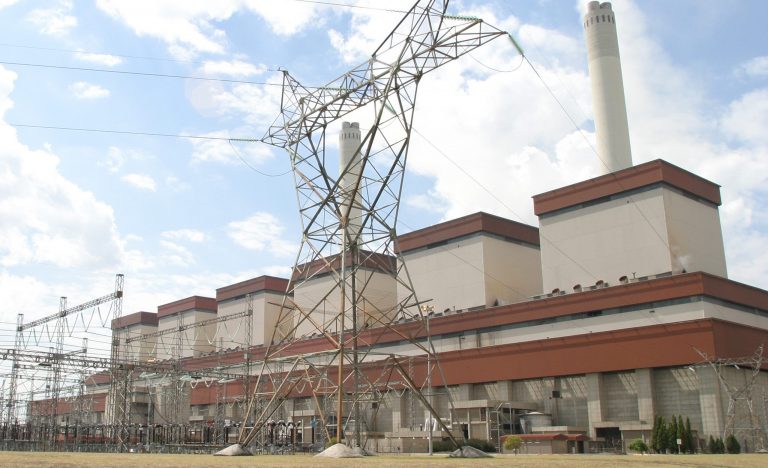Unplanned outages drop below 8 000MW for the first time since 2020; 4 850MW of generation capacity returning by Monday – power system remains stable
Friday, 22 August 2025: As of today, unplanned outages reached a notable milestone of 7 265MW. This is the first time the generation fleet has operated below the 8 000MW mark since 11 December 2020, highlighting the structural progress in plant performance as a result of the ongoing implementation of the Generation Recovery Plan.
With just over a week remaining in Eskom’s Winter Outlook period, the power system remains well-positioned to maintain stability and reliably meet demand.
Eskom’s sustained technical improvements have ensured a reliable power system, meeting more than 97% of electricity demand this winter and financial year to date. South Africa has experienced no loadshedding since 15 May 2025, with only 26 hours recorded between 1 April and 21 August 2025.
The available generation capacity currently stands at 30 442MW, while tonight’s electricity demand is expected to reach 25 378MW. The current capacity is sufficient to meet both today’s demand and anticipated requirements over the weekend.
Between 15 and 21 August 2025, planned maintenance increased slightly, averaging 5 524MW. During this period, the Energy Availability Factor (EAF) fluctuated between 63% and 69%, with the month-to-date average rising to 64.98%. This upward trend reflects growing stability and improved reliability across the generation fleet. These figures exclude Kusile Unit 6, which has been contributing 720MW to the national grid since 23 March 2025. Although not yet in commercial operation, the unit is expected to reach that milestone by September 2025
To further strengthen grid stability, Eskom is planning to return a total of 4 850MW of generation capacity to service ahead of the evening peak on Monday, 25 August 2025, and throughout the coming week.
Between 1 April and 21 August 2025, the Unplanned Capability Loss Factor (UCLF), which reflects the percentage of generation capacity lost due to unplanned outages, further decreased to 27.85%. This represents a week-on-week improvement of approximately 0.29%, although it remains about 2.0% higher than the 25.81% recorded during the same period last year.
The open-cycle gas turbine (OCGT) load factor further decreased to 0.78% this week from 1.21% the previous week (8–14 August 2025), with OCGTs utilised strategically to address occasional system constraints during morning and evening peak periods.
From 1 April to 21 August 2025, diesel spend remains within the allocated budget.
The Winter Outlook, published on 5 May 2025, covering the period ending 31 August 2025, remains valid. It indicates that loadshedding will not be necessary if unplanned outages stay below 13 000MW. If outages rise to 15 000MW, loadshedding would be limited to a maximum of 21 days out of 153 days and restricted to Stage 2.
Eskom is scheduled to announce its Summer Outlook in September 2025.
Key Performance Highlights:
- Unplanned outages averaged 10 471MW over the past week, lower than the 10 733MW recorded during the same period last year. This reflects a year-on-year reduction of 262MW and remains significantly below the base case projection of 13 000MW by 2 529MW.
- Year-to-date, planned maintenance has averaged 5 223MW, accounting for 11.12% of total generation capacity. This reflects a slight increase from the previous week and a 0.8% rise compared to the same period last year.
- The year-to-date EAF further increased to 60.56%, excluding the 720MW contribution from Kusile Unit 6. This figure is below the 63.35% recorded during the same period last year, mainly due to a 2.0% YTD increase in unplanned maintenance compared to the previous year.
- Over a period of approximately five months, from 1 April to 21 August 2025, Eskom spent R5.916 billion on fuel for its OCGT plants, generating 999.95GWh of electricity. This represents a significant increase compared to the 525.44GWh produced during the same period last year. It is important to note that diesel expenditure is not uniform throughout the year but varies seasonally in response to system demand and operational requirements.
- The year-to-date load factor for OCGTs has decreased to 8.53%, reflecting a 0.40% decrease compared to the previous week. This figure remains higher than the 4.48% recorded during the same period last year.
Protect transformers this winter – avoid illegal connections and prevent power failures
With loadshedding suspended and electricity demand rising during the winter period, Eskom urges all customers to act responsibly and help safeguard the power system. Illegal connections and meter bypassing not only constitute theft but also place immense strain on the network, often leading to transformer overloads, equipment damage, and in severe cases, explosions and extended outages.
To protect critical infrastructure, Eskom is compelled to implement load reduction by switching off power during peak hours in high-risk, isolated areas to prevent potential damage. To help maintain a stable and uninterrupted electricity supply, customers are strongly urged to avoid bypassing meters and refrain from illegal connections. Electricity should be purchased only through Eskom-accredited vendors, and users are encouraged to regularise their electricity usage. These steps are essential to ensuring safe, reliable, and fair access to electricity for all.
Eligible households are encouraged to register for free basic electricity with their local municipalities.
Any illegal activity impacting Eskom’s infrastructure should be reported to the Eskom Crime Line at 0800 112 722 or via WhatsApp on 081 333 3323.
Eskom encourages all South Africans to use electricity efficiently throughout the winter season. To help manage household electricity consumption, Eskom customers are encouraged to use the Eskom Residential Calculator, a convenient tool for tracking and optimising energy usage: https://www.eskom.co.za/distribution/residential-calculator/
Eskom will provide an update on Friday, 29 August 2025, or promptly communicate any significant changes as soon as they occur.
ENDS








